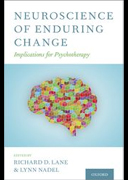Description
The field of psychotherapy began over 100 years with the hope that its neural foundations could be understood. Since then, the field of neuroscience has burgeoned such that it is now possible to envision in a rudimentary way what brain mechanisms may participate in bringing about meaningful and enduring change. A key development has been the discovery that memories are not fixed but can be updated under certain circumstances, a process known as memory reconsolidation. This is critical because memories guide future behavior as well as provide a record of the past. Another foundational discovery is that emotions influence the content and context of what is recalled. Drawing upon a recent hypothesis that enduring change in all major psychotherapy modalities comes about through reconsolidation of emotional memories, the first section of the book addresses the basic science of some of the key ingredients of psychotherapy including emotion, different kinds of memory, interactions between different kinds of memory, the evidence for memory reconsolidation, emotion–memory interactions, and the role of sleep in memory consolidation and reconsolidation. The second section focuses on a number of psychotherapy modalities, including several in the cognitive-behavioral, experiential, and psychodynamic traditions, and discusses how enduring change is thought to occur including the possible role of memory reconsolidation. A major aim of this book is to describe what is and is not known for the purpose of defining the future research agenda. Guided by this new knowledge, the practice of psychotherapy may be transformed in the foreseeable future.

